Louisiana
‘Don’t Say Gay’ pile-on: Louisiana State Rep. introduces sweeping bill
Horton told WBRZ ABC 2: “I talked to my pastor and he challenged me and said, ‘we definitely need to do this’”
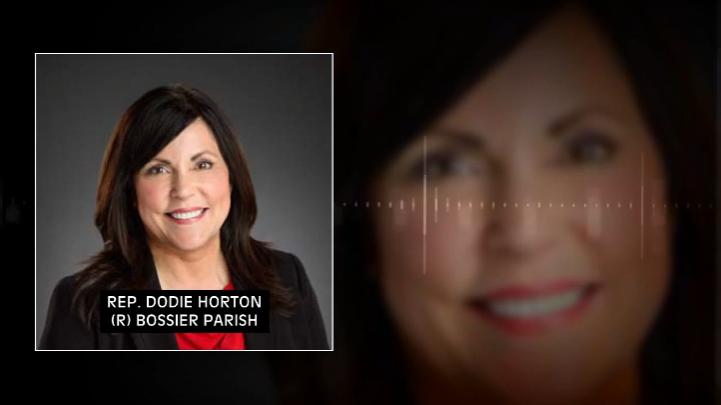
BATON ROUGE- Louisiana House Representative Dodie Horton, Republican District 9-Bossier Parish, introduced a sweeping bill Thursday that would bar school employees from discussing sexual orientation or gender identity in K-12 classrooms in the state.
House Bill 837 states:
- No teacher, school employee, or other presenter shall cover the topics of sexual orientation or gender identity in any classroom discussion or instruction in kindergarten through grade eight.
- No teacher, school employee, or other presenter shall discuss his own sexual orientation or gender identity with students in kindergarten through grade twelve.
Horton, speaking with ABC News’ Baton Rouge affiliate WBRZ-2, told the station;
“I wasn’t aware of the need [for this legislation] until I looked at some things on Twitter and Facebook,” Horton told WBRZ Thursday. “It just solidified for us to protect our Louisiana children, as well.”
“I started to pray about how we could protect our children here from inappropriate conversations until they are able to dissect it and old enough to understand it,” Horton explained. “I talked to my pastor and he challenged me and said, ‘we definitely need to do this.’”
About a week after lawmakers passed Florida’s controversial “Don’t Say Gay” bill, a Louisiana legislator has proposed a similar law regulating the discussion of sexual orientation in classrooms. https://t.co/qsRnoSURuO
— WBRZ News (@WBRZ) March 17, 2022
This legislation follows passage of a similar bill in Florida and efforts in Virginia, Tennessee and Georgia and 16 other states in at least 40 bills have been introduced to ban classroom discussion of LGBTQ+ people which opponents charge leads to erasure of LGBTQ+ identity and increased risks of suicide by LGBTQ+ youth.
URGENT: HB 837, a #DontSayGay bill authored by Rep. Dodie Horton, is meant to stigmatize #LGBTQ people, isolate LGBTQ kids, and make teachers fearful of providing safe, #inclusive classrooms. Call her office and ask her to withdraw House Bill 837. 318-949-2463 pic.twitter.com/4AysUej0Gq
— LA Trans Advocates (@LouisianaTrans) March 18, 2022
Governor John Bel Edwards’ office released the following statement in response to the bill, reiterating comments made by the governor during Monday’s State of the State address.
“Some of the bills being brought up this session do nothing to make lives better. Nothing to continue moving us forward. They only serve to divide us. And frankly, some are reminiscent of a dark past that we should learn from, not relive.”
Louisiana
Restrictions on trans students’ pronouns clears Louisiana senate
Transgender and nonbinary students names and pronouns rules would apply even if students legally change their name and gender

By Piper Hutchinson | BATON ROUGE, La. – A controversial anti-LGBTQ+ bill restricting what names and pronouns transgender and nonbinary students can use in K-12 schools was approved Wednesday in the Louisiana Senate, placing it two steps away from becoming law.
House Bill 121 by Rep. Raymond Crews, R-Bossier City, prohibits the use of transgender and nonbinary youths’ chosen names and pronouns in K-12 public schools without parental permission. It passed on a 27-9 vote, with Democratic Sen. Katrina Jackson-Andrews of Monroe joining Republicans in supporting the bill.
Crews’ bill would require teachers and other school personnel to use a student’s given name and pronouns that align with their birth sex unless a student has permission from their parents to use their chosen name. Though the proposal has been promoted as a “parental rights” bill, it also gives a teacher the ability to decline to use a transgender student’s preferred name and pronouns if the teacher has a religious objection.
The bill was amended in the Senate to define a student’s legal name as “a person’s name as may be evidenced on his original birth certificate issued at or near the time of birth,” meaning a teacher with a religious objection could decline to use a transgender student’s name and pronouns even if they have their birth certificate legally changed.
“By mandating discriminatory measures in our schools, this legislation not only strips trans students of their fundamental rights but also fosters a climate of fear and exclusion,” Peyton Rose Michelle, executive director of Louisiana Trans Advocates, said in a statement. “Louisiana deserves better than laws that undermine the dignity of its youth.”
In an interview, Crews said that while his bill supports parental rights, parents should not be able to eclipse somebody else’s religious rights.
Crews’ bill does not have an exception for those who have a religious objection to deadnaming or misgendering students. Deadnaming is when someone uses a transgender or nonbinary person’s birth name or “dead name” against their wishes. Misgendering occurs when someone refers to an individual as a gender that they do not identify.
“This bill is a grave violation of parental rights by prioritizing the moral objections of others over the fundamental rights of transgender students to be recognized by their chosen names, pronouns and identities,” SarahJane Guidry, executive director of LGBTQ+ rights group Forum for Equality said when the bill came up in committee. “This legislation sets a dangerous and discriminatory precedent.”
While the bill would allow parents to request a classroom change if a teacher disregards their permission for their transgender or nonbinary child to use their name or pronouns, it does not require the change. Advocates have argued classroom switching might not be feasible in smaller schools.
At the core of Crews’ proposal is his belief that parents have the right to know whether their children are transgender. Advocates for the LGBTQ+ community say the bill would force transgender youth to out themselves to their parents or else be deadnamed and misgendered at school. They have raised concerns about what happens when parents find out — and don’t approve.
A survey from the Trevor Project found 38% of transgender women, 39% of transgender men and 35% of nonbinary youth have experienced homelessness as a result of parental rejection.
When asked if he thought the bill would have a detrimental impact on transgender youth, Sen. Alan Seabaugh, R-Shreveport, who was tasked with carrying the bill in the Senate, argued it would have a positive impact.
“If they’re a male, and they want to be called ‘she’, there’s probably something wrong with them, so let’s call them a ‘he,’” Seabaugh said.
Seabaugh also argued the bill will reduce bullying, as he believes a transgender student is opening themselves up to bullying by identifying with a gender that differs with their sex assigned at birth.
Crews’ bill has to go back to the House of Representatives for another vote because it was amended by the Senate, where it is likely to receive another vote of approval. The bill is supported by Republican Gov. Jeff Landry.
******************************************************************************************

Piper Hutchinson is a reporter for the Louisiana Illuminator. She has covered the Legislature and state government extensively for the LSU Manship News Service and The Reveille, where she was named editor in chief for summer 2022.
******************************************************************************************
The preceding piece was previously published by the Louisiana Illuminator and is republished by permission.
Louisiana Illuminator is part of States Newsroom, a network of news bureaus supported by grants and a coalition of donors as a 501c(3) public charity. Louisiana Illuminator maintains editorial independence.
Louisiana
Louisiana Legislature passes ‘Don’t Say Gay or trans’ bill
Horton’s bill also prohibits “covering the topics of sexual orientation or gender identity” during any extracurricular and athletics events
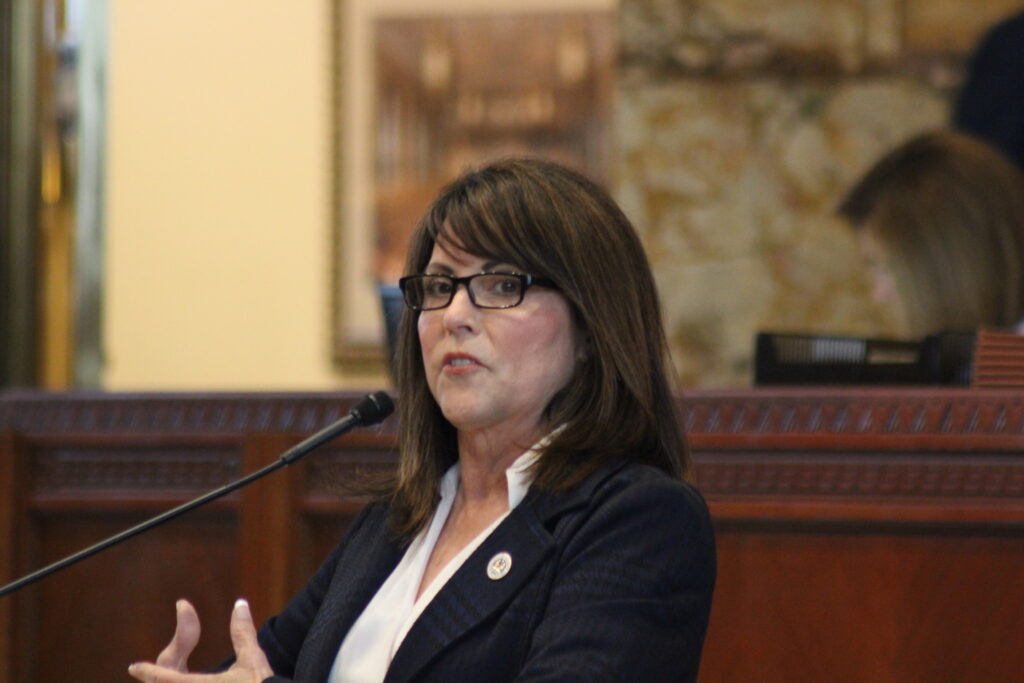
By Piper Hutchinson | BATON ROUGE, La. – Discussion of gender identity and sexual orientation in Louisiana’s K-12 public schools could soon be restricted after the state Senate approved a far-reaching anti-LGBTQ+ bill Thursday.
Senators sent House Bill 122 by Rep. Dodie Horton, R-Haugton, which limits discussion of gender and sexuality in public schools, to Republican Gov. Jeff Landry, who is expected to sign it into law. It passed on a 28-7 vote, with Democratic Sens. Katrina Jackson-Andrews of Monroe and Regina Barrow of Baton Rouge joining Republicans in support of the bill.
The Legislature approved the same bill last year. Then-Gov. John Bel Edwards, a Democrat, vetoed it, and Republicans were unable to overturn his action
Horton’s bill restricts discussion of gender and sexuality in schools, except for topics in approved curricula. This would allow discussion of a romantic relationship in a book but not mentions of a teacher’s family, for example. Horton said in committee her bill would also block discussion of heterosexuality and cisgender identity. Cisgender refers to anyone whose gender identity aligns with their sex assigned at birth.
The measure is similar to a Florida law referred to by critics as a “Don’t Say Gay” bill. Horton’s proposal is much broader and would apply to K-12 grades, whereas Florida’s law applies only to early-grade students.
Florida recently settled a lawsuit over the law filed by civil rights activists. As part of the agreement, students and teachers are permitted to discuss gender and sexuality as long as it is not part of classroom instruction.
Horton said she didn’t believe teachers should discuss their “lifestyle choices” with students.
“Having sexualized personal discussions between educators and students in our classrooms are not appropriate, and they can rob our children of their innocence while imposing suggested influence over their developing young minds,” Horton said when her bill came up in committee.
When asked whether the bill would have a negative impact on LGBTQ+ students, Sen. Beth Mizell, R-Franklinton, who was tasked with carrying the bill in the Senate, said that was not the intent of the proposal.
“It’s good to have a safe place where parents can have some confidence, for instance, if there is an LGBTQ employee, I think letting parents know ‘OK, I’m fine with that person, because I know they can’t talk to my child about their sexual orientation, no more than I would want a promiscuous male or female teacher to talk to my child about their sexual partners,’” Mizell said.
Horton’s bill would not just apply to classroom instruction. It also prohibits “covering the topics of sexual orientation or gender identity” during any extracurricular and athletics events, meaning it could potentially hinder student chapters of the Gay-Straight Alliance and other LGBTQ+ student organizations.
The Senate rejected a series of amendments Sen. Royce Duplessis, D-New Orleans, proposed that would have restricted the bill’s limitations to only K-8 grades, defined the terms “sexual orientation” and “gender identity,” excluded extracurricular activities, and limited the effect to only classroom instruction rather than discussion between teachers and students. Jackson-Andrews also sided with Republicans in rejecting the amendments.
A separate proposal, House Bill 121 by Rep. Raymond Crews, R-Bossier City, is slated to be discussed by the Senate next week. It prohibits the use of transgender and nonbinary youth’s chosen names and pronouns in public K-12 schools without parental permission.
******************************************************************************************

Piper Hutchinson is a reporter for the Louisiana Illuminator. She has covered the Legislature and state government extensively for the LSU Manship News Service and The Reveille, where she was named editor in chief for summer 2022.
******************************************************************************************
The preceding piece was previously published by the Louisiana Illuminator and is republished by permission.
Louisiana Illuminator is part of States Newsroom, a network of news bureaus supported by grants and a coalition of donors as a 501c(3) public charity. Louisiana Illuminator maintains editorial independence.
Louisiana
La. library board members launch federal suit over removal
The library board repeatedly refused to limit access to 150 books deemed sexually explicit by critics. Most of the titles have LGBTQ+ themes
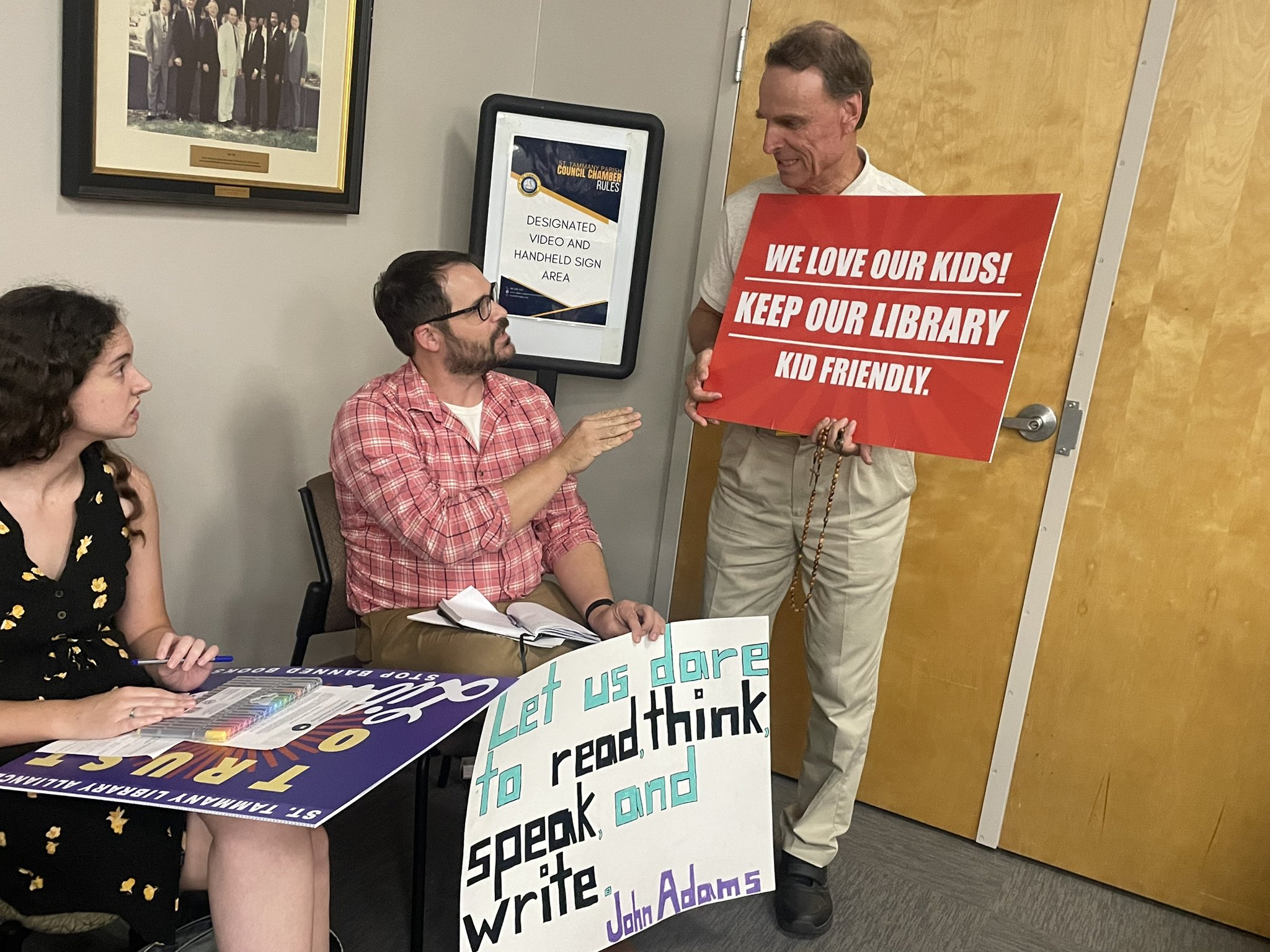
By Piper Hutchinson | COVINGTON, La. – Three St. Tammany library board members removed after a years-long fight over book content are suing the parish council and one of its district representatives in an attempt to block their removal.
Their federal lawsuit comes after the parish council voted earlier this month to replace five of the six members of the St. Tammany Library Board of Control, a volunteer body that oversees the parish library system. Their removal culminated months of contentious fights.
Conservative activists in the parish, led by the far-right St. Tammany Library Accountability Project, attempted to ban more than 150 books it deemed sexually explicit. Most of the titles challenged have LGBTQ+ themes. The library board repeatedly refused to limit access to the books, rejecting arguments that the books were sexually explicit. Their refusal put them crosswise with the new, more conservative parish council that took office earlier this year.
The three board members — Bill McHugh, Anthony Parr and Rebecca Taylor — are suing the St. Tammany Parish Council and Councilman David Cougle, a founder and attorney for the Accountability Project who led the charge to remove the members. The plaintiffs have asked the court for a temporary restraining order on their removal, which would allow them to stay in their positions while the lawsuit plays out.
In a statement, the plaintiffs emphasized the lawsuit was undertaken by them as individuals, not as an official action by the library board. They also noted Kelly LaRocca, the parish’s library director, is not involved in the suit.
Cougle has not yet responded to a request for comment for this report.
On May 4, the parish council voted to replace five board members, ostensibly because the council had discovered the board was not serving in staggered terms, as required by state law. But rather than staggering the current board members, the council used the opportunity to remove board members that resisted book restrictions.
That violated the First Amendment rights of the ousted board members, the plaintiffs charge.
“Plaintiffs were engaged in constitutionally protected activity when they spoke and acted at Library Bord [sic] meetings, as well as when they spoke out on matters of public concern such as the controversy over books with LGBTQ themes and characters, the presence or absence of sexually explicit material in libraries, whether or not certain materials available in libraries is ‘pornography’ or constitutes ‘obscenity,’ and whether and how minors have access to such materials,” the lawsuit reads.
The lawsuit alleges the concern over staggered terms was an “obvious ploy” used to retaliate against their protected speech and their refusal to restrict access to books.
“Supreme Court precedent has focused “not only on the role of the First Amendment in fostering individual self-expression but also on its role in affording the public access to discussion, debate, and the dissemination of information and ideas,” the lawsuit says. “And it has recognized that ‘the State may not, consistently with the spirit of the First Amendment, contract the spectrum of available knowledge.’”
The suit has been filed in federal court for the Eastern District of Louisiana. If the court opts to grant a temporary restraining order, the existing library board would be allowed to continue serving pending the outcome of the lawsuit, which seeks to permanently block the council’s resolution to remove members.
“Preventing the Parish Council from engaging in unlawful patronage dismissal will preserve the integrity and independence of the Library Board, rather than leaving it subject to the political whims of the Parish Council,” the lawsuit says.
The lawsuit also says allowing the members to continue serving would continue to protect the public’s constitutional rights to receive information by maintaining their access to library books.
******************************************************************************************

Piper Hutchinson is a reporter for the Louisiana Illuminator. She has covered the Legislature and state government extensively for the LSU Manship News Service and The Reveille, where she was named editor in chief for summer 2022.
******************************************************************************************
The preceding piece was previously published by the Louisiana Illuminator and is republished by permission.
Louisiana Illuminator is part of States Newsroom, a network of news bureaus supported by grants and a coalition of donors as a 501c(3) public charity. Louisiana Illuminator maintains editorial independence.
Louisiana
Trans bathroom restrictions heads to Louisiana governor’s desk
The bill would also require a trans man, even one who has transitioned via hormones & gender affirming surgery, to use women. facilities
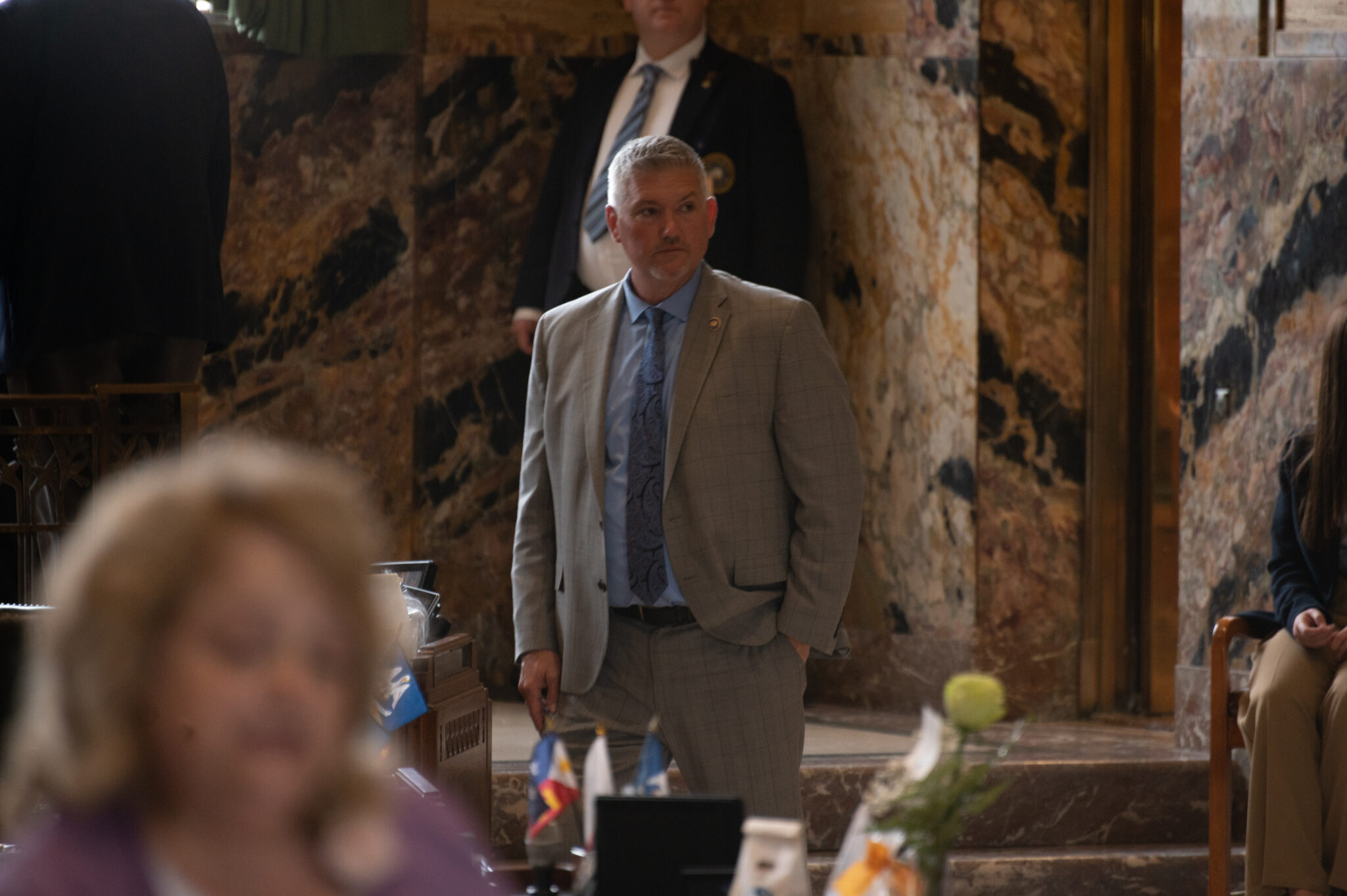
By Piper Hutchinson | BATON ROUGUE, La. – The Louisiana Senate easily passed a controversial bill restricting what bathrooms, changing rooms and sleeping quarters transgender people use in public facilities, sending it to the governor’s desk for action.
House Bill 608 by Rep. Roger Wilder, R-Denham Springs, passed the Senate on a 29-10 vote after less than 15 minutes of discussion. Senate President Pro Tempore Regina Barrow, D-Baton Rouge, voted with Republicans on the bill. Sen. Katrina Jackson-Andrews, D-Monroe, voted against the bill but later added her name as a co-author.
Wilder’s bill, which he’s dubbed the “Women’s Safety and Protection Act,” would segregate all bathrooms, changing and locker rooms as well as sleeping quarters by sex in public schools, domestic violence shelters and correctional facilities, prohibiting transgender people from using facilities that align with their gender identity.
When he presented his bill to the House last month, Wilder was unable to point to a specific incident in Louisiana in which a woman or girl was harmed by a transgender woman at a public restroom or changing facility.
Kate Kelly, a spokesperson for Republican Gov. Jeff Landry, was not immediately able to confirm Landry’s plans for the bill. The arch-conservative governor has openly supported other anti-LGBTQ+ measures, including two that restrict the discussion of gender and sexuality in K-12 schools.
The bill also defines the terms “man,” “woman,” “girl,” “boy,” “male” and “female.” These definitions specifically exclude gender identity, which the bill does not define.
Wilder’s proposal was carried on the Senate floor by Sen. Beth Mizell, R-Franklinton, who authored a law that prevents transgender people from competing in women’s sports.
The bill was opposed by several LGBTQ+ rights advocates who argued the bill needlessly harms transgender people. The Williams Institute at the UCLA School of Law estimates there are approximately 20,000 transgender people living in Louisiana.
“This bill represents a deeply troubling attempt to deny the humanity and dignity of an already vulnerable population by seeking to eliminate legal recognition of gender identities beyond the binary,” SarahJane Guidry, executive director of Forum for Equality, an LGBTQ+ rights organization, said at a committee hearing on the bill last week.
Transgender people tend to experience higher rates of domestic violence and have higher suicide rates than people who identify as the gender they were assigned at birth. While many domestic violence shelters already turn away transgender people, Wilder’s bill would require they do so unless they have the space to offer separate sleeping quarters and bathrooms for transgender people.
While Wilder pitched his bill as a way to keep women and girls from feeling uncomfortable or unsafe when men enter private areas, the legislation would require a transgender man, even one who has transitioned via hormones and gender affirming surgery, to use facilities designated for women.
A transgender man is a man who was assigned female at birth. Transitioning refers to actions taken by a transgender person to align their bodies with their identified gender.
The bill would allow anybody who experiences, or is expected to experience, direct or indirect harm as a violation of the bill to sue, including someone who is retaliated against for pointing out a violation.
******************************************************************************************

Piper Hutchinson is a reporter for the Louisiana Illuminator. She has covered the Legislature and state government extensively for the LSU Manship News Service and The Reveille, where she was named editor in chief for summer 2022.
******************************************************************************************
The preceding piece was previously published by the Louisiana Illuminator and is republished by permission.
Louisiana Illuminator is part of States Newsroom, a network of news bureaus supported by grants and a coalition of donors as a 501c(3) public charity. Louisiana Illuminator maintains editorial independence.
Louisiana
Bills targeting Louisiana’s LGBTQ+ youth close to final approval
Horton’s bill could potentially hinder student chapters of the Gay-Straight Alliance and other LGBTQ+ student organizations
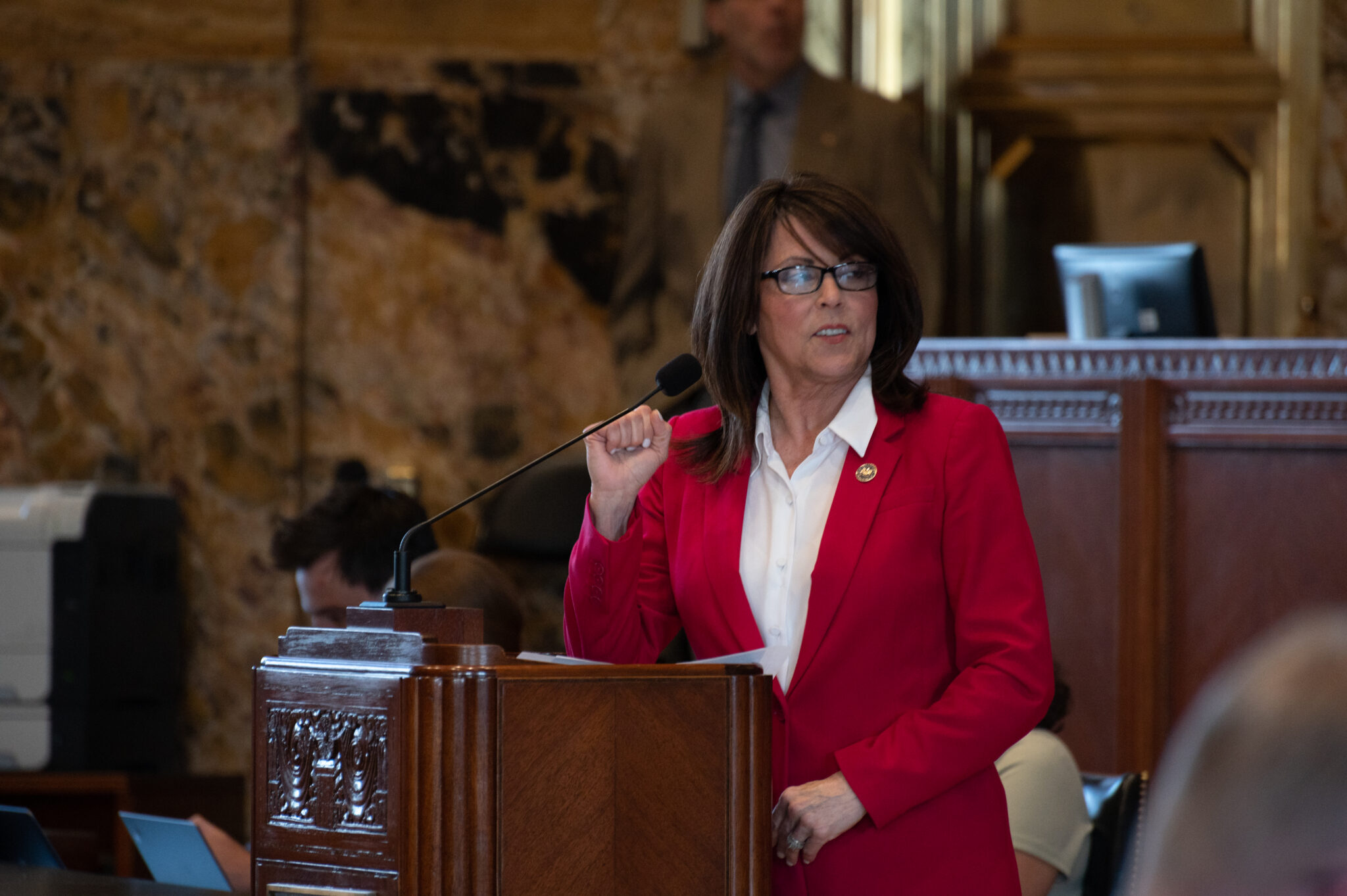
By Piper Hutchinson | BATON ROUGUE, La. – Two anti-LGBTQ+ bills advanced Wednesday from the Louisiana Senate Committee on Education, putting them one step away from final legislative approval.
The committee advanced House Bill 121 by Rep. Raymond Crews, R-Bossier City, which prohibits the use of transgender and nonbinary youth’s chosen names and pronouns in public K-12 schools without parental permission.
House Bill 122 by Rep. Dodie Horton, R-Haugton, which limits discussion of gender and sexuality in public K-12 schools, was also approved.
Both bills were advanced without objection. Sen. Katrina Jackson-Andrews, D-Monroe, was the only Democrat present.
The Legislature approved both bills last year. Then-Gov. John Bel Edwards, a Democrat, vetoed them, and Republicans were unable to overturn his action. Lance Maxwell, a legislative liaison for Republican Gov. Jeff Landry, attended the committee meeting in support of Crews’ and Horton’s bills.
Wednesday’s emotional hearing marked the latest step for an advancing culture-war agenda, once held back under a Democratic governor. With the support of an ultra-conservative in the governor’s mansion, a slew of anti-LGBTQ+ proposals are rapidly advancing toward enactment.
“I don’t know how y’all continue to hear things from us about our pain and our trauma, and just still pass bills,” Peyton Rose Michelle, executive director of Louisiana Trans Advocates, said. “I don’t know how y’all sit through these things, and you don’t break down.”
Crews’ bill would require teachers and other school personnel to use a student’s given name and pronouns that align with their birth sex unless a student has permission from their parents to use their chosen name. The proposal has been promoted as a “parental rights” bill.
“This bill is a grave violation of parental rights by prioritizing the moral objections of others over the fundamental rights of transgender students to be recognized by their chosen names, pronouns and identities,” SarahJane Guidry, executive director of LGBTQ+ rights group Forum For Equality said. “This legislation sets a dangerous and discriminatory precedent.”
“This relentless focus on legislating the lives of a small, vulnerable population diverts precious time, money and energy away from addressing real educational issues,” Guidry added.
Under Crews’ bill, teachers would be allowed to disregard a parent’s choice to respect their transgender or nonbinary child’s name and pronouns if they have religious opposition to doing so.
In an interview, Crews said that while his bill supports parental rights, parents should not be able to eclipse somebody else’s religious rights.
His bill does not have an exception for those who have a religious opposition to deadnaming or misgendering students. Deadnaming is when someone uses a transgender or nonbinary person’s birth name or “dead name” against their wishes. Misgendering occurs when someone refers to an individual as a gender that they do not identify.
While the bill would allow parents to request a classroom change if a teacher disregards their permission for their transgender or nonbinary child to use their name or pronouns, it does not require this change to take place. Advocates have argued such classroom changes may not be feasible in smaller schools.
Jacob Newsom, an Ascension Parish public school teacher, said disregarding students’ names and pronouns would make them uncomfortable, which he believes would hamper the learning environment.
“How am I going to reach this child? How am I going to effectively teach this child?” Newsom said.
“There is an undeniable correlation between feeling safe and secure and being able to learn,” Megan Sheehan-Dean, a child learning expert, later added.
At the core of Crews’ proposal is his belief that parents have the right to know whether their children are transgender. Advocates for the LGBTQ+ community say the bill would force transgender youth to out themselves to their parents or else be deadnamed and misgendered at school. They have raised concerns about what happens when parents find out — and don’t approve.
A survey from the Trevor Project found 38% of transgender women, 39% of transgender men and 35% of nonbinary youth have experienced homelessness as a result of parental rejection.
Horton’s bill is similar to a Florida law referred to by critics as a “Don’t Say Gay” bill. Her proposal is much broader and would apply to K-12 grades, whereas Florida’s law applies only to early grade students.
Florida recently settled a lawsuit over the law filed by civil rights activists. As part of the agreement, students and teachers are permitted to discuss gender and sexuality as long as it is not part of classroom instruction.
Horton said she didn’t believe teachers should discuss their “lifestyle choices” with students.
“Having sexualized personal discussions between educators and students in our classrooms are not appropriate, and they can rob our children of their innocence while imposing suggested influence over their developing young minds,” Horton said.
Horton’s bill would not just apply to classroom instruction. It also prohibits “covering the topics of sexual orientation or gender identity” during any extracurricular and athletics events, meaning it could potentially hinder student chapters of the Gay-Straight Alliance and other LGBTQ+ student organizations.
When asked by committee Chair Sen. Rick Edmonds, R-Central, Horton agreed that heterosexuality falls under “sexual orientation” and is also not appropriate for classroom discussion.
The bills will next be discussed in the Senate.
******************************************************************************************

Piper Hutchinson is a reporter for the Louisiana Illuminator. She has covered the Legislature and state government extensively for the LSU Manship News Service and The Reveille, where she was named editor in chief for summer 2022.
******************************************************************************************
The preceding piece was previously published by the Louisiana Illuminator and is republished by permission.
Louisiana Illuminator is part of States Newsroom, a network of news bureaus supported by grants and a coalition of donors as a 501c(3) public charity. Louisiana Illuminator maintains editorial independence.
Louisiana
Unconstitutional definition of marriage to remain in Louisiana law
Many lawmakers support keeping anti-LGBTQ+ trigger law on the books, a federal court said banning same-sex marriage is unconstitutional
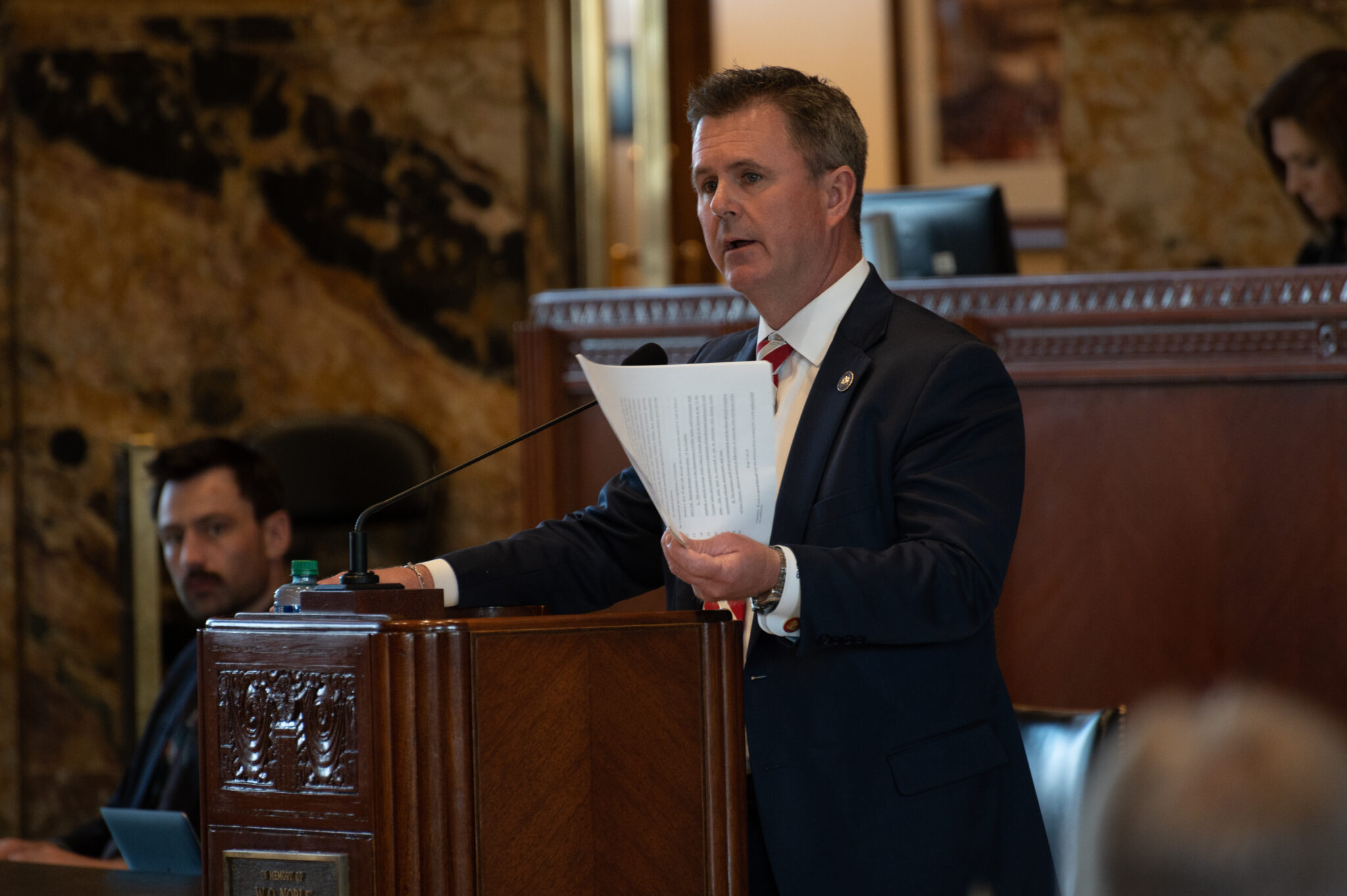
By Piper Hutchinson | BATON ROUGE, La. – Republican lawmakers plan to leave in a section of the Louisiana constitution that defines marriage as between one man and one woman during a potential constitutional rewrite despite a U.S. Supreme Court ruling.
Rep. Beau Beaullieu, R-New Iberia, the lawmaker carrying the legislation calling for a constitutional convention, said his conservative colleagues want to leave in the “Defense of Marriage” section just in case the landmark 2015 civil rights case Obergefell v. Hodges, which legalized same-sex marriage nationwide, is overturned.
“I’ve had requests to leave it in. I haven’t had any requests to remove it,” Beaullieu said in an interview with the Illuminator. Beaullieu declined to name who requested to leave the unconstitutional section in, but said he received “many” requests to do so.
About 62% of Louisianians support same-sex marriage, according to a 2022 survey from the nonpartisan Public Religion Research Institute, which also found approximately half of Republicans nationwide support same-sex marriage.
Lawmakers are currently discussing Beaullieu’s House Bill 800 that would assemble a constitutional convention, with 144 legislators and 27 delegates appointed by the governor meeting to make changes to the document.
Beaullieu has said the delegates would use the convention to move some portions of the constitution into statute, which would make it substantially easier for legislators to change them.
Neither Beaullieu or Republican Gov. Jeff Landry, who is the driving force behind the convention, has been forthcoming about what they want to remove from the constitution, although they have promised to wall off public school funding protections and the homestead exemption property tax break in the constitution. While lawmakers have billed this as a limited convention to “refresh” the constitution, delegates likely would have authority to change anything they wanted.
Kate Kelly, a spokesperson for Landry, did not respond to a request for comment for this story.
Article XII Section 15 of the 1973 constitution
Marriage in the state of Louisiana shall consist only of the union of one man and one woman. No official or court of the state of Louisiana shall construe this constitution or any state law to require that marriage or the legal incidents thereof be conferred upon any member of a union other than the union of one man and one woman. A legal status identical or substantially similar to that of marriage for unmarried individuals shall not be valid or recognized. No official or court of the state of Louisiana shall recognize any marriage contracted in any other jurisdiction which is not the union of one man and one woman.
The Louisiana State Law Institute, which is required by law to provide a report on unconstitutional and preempted state laws to the legislature every other year, has included this portion of the constitution in every report since 2016.
The Institute has recommended the legislature pass a constitutional amendment to the voters to change the definition as not a marriage between one man and one woman, but as between two natural persons.
While the legislature has declined to do this, it has instructed new printings of the constitution to include a note regarding the Obergefell decision below the section.
In Obergefell v. Hodges, the U.S. Supreme Court found that same-sex couples could not be deprived the right to marry under 14th Amendment protections. As a result of this ruling, same-sex couples now have a legal right to marry in every U.S. state.
After the Obergefell ruling, the U.S. Fifth Circuit Court of Appeals reversed its ruling in Robicheaux v. Caldwell, which in 2014 upheld Louisiana’s ban on same-sex marriage. In the Robicheaux reversal order, the court explicitly stated that the portion of Louisiana’s constitution banning same-sex marriage is unconstitutional.
Article XII Section 15 was added to the constitution in 2004 after being approved by 78% of voters. The constitutional amendment was proposed by then state Rep. Steve Scalise, who is now the U.S. House majority leader.
Legislators have made several attempts to repeal this portion of the constitution, most recently in the current legislative session. House Bill 98 by Rep. Mandie Landry, D-New Orleans, was shelved in its first committee hearing. The bill would have complied with the Louisiana Law Institute’s recommendation by defining marriage as “the union of two persons.”
Landry said she intends to bring up the proposal again if the constitutional convention happens.
The bill was sidelined at the request of House Speaker Pro Tempore Rep. Mike Johnson, R-Pineville, who argued the Legislature should avoid advancing bills that would put constitutional questions on the ballot in light of the potential constitutional convention.
Rep. Landry argued it’s important to repeal that section of the constitution not just for symbolic reasons, but because many fear further legal attacks on same-sex marriage.
“Younger people don’t stay up at night thinking they want to leave here because the Constitution is too long, but they do think about and they do leave because of issues like same sex, marriage, abortion, reproductive issues,” she said.
Beaullieu’s bill, which calls for a constitutional convention this summer, has received approval from the House of Representatives but has not yet been scheduled for a hearing in the Senate and Governmental Affairs Committee.
If a convention was held — which is still uncertain due to skepticism from senators — it would take place in three stages: An organizational session to select convention leaders could take place as soon as May 30. Convention committees would then meet in June and July to discuss potential constitutional changes, and wrap up their work by Aug. 1, when the full convention would then meet until Aug. 15. The finished product would then be on a ballot for voter approval at the same time of the presidential election in November.
******************************************************************************************

Piper Hutchinson is a reporter for the Louisiana Illuminator. She has covered the Legislature and state government extensively for the LSU Manship News Service and The Reveille, where she was named editor in chief for summer 2022.
******************************************************************************************
The preceding article was previously published by the Louisiana Illuminator and is republished with permission.
The Louisiana Illuminator is an independent, nonprofit, nonpartisan news organization with a mission to cast light on how decisions in Baton Rouge are made and how they affect the lives of everyday Louisianians. Our in-depth investigations and news stories, news briefs and commentary help residents make sense of how state policies help or hurt them and their neighbors statewide.
We’re part of States Newsroom, the nation’s largest state-focused nonprofit news organization.
Louisiana
Uncertainty as Louisiana sues feds over new Title IX rules
Louisiana — along with Mississippi, Montana and Idaho — filed suit against the federal government over newly issued rules under Title IX
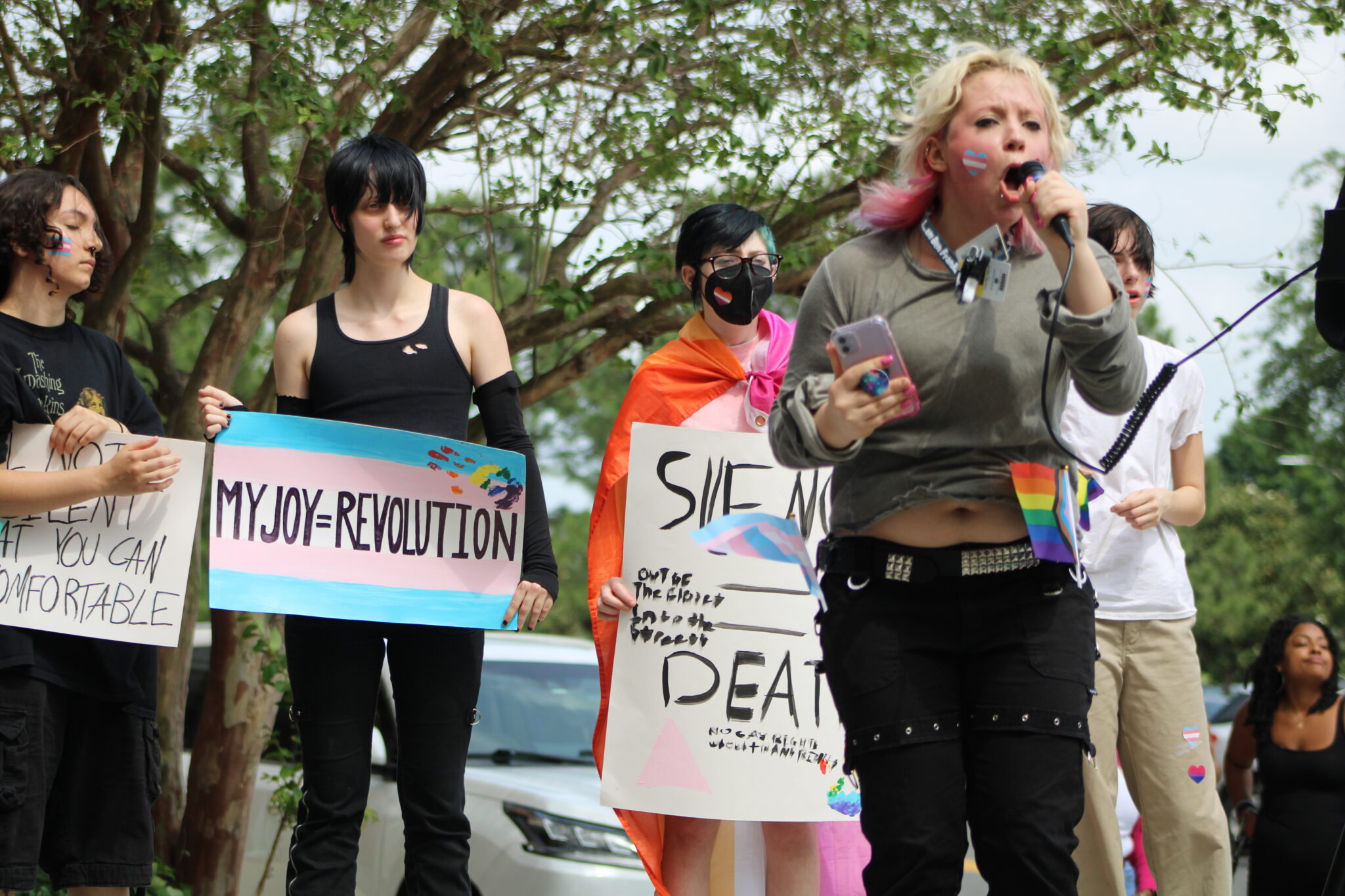
By Minh Ha, Verite | NEW ORLEANS, La. – Transgender public school students are caught in the middle of a legal battle between the state of Louisiana and the federal government, and schools have no clear answers on how to proceed.
Last week, Gov. Jeff Landry announced that Louisiana — along with Mississippi, Montana and Idaho — filed suit against the federal government over newly issued rules under Title IX, a 1972 law prohibiting gender discrimination in educational institutions that receive federal funding, including public K-12 schools in the state.
The new guidelines, released by the U.S. Department of Education last month, expand the definition of prohibited sex discrimination to apply to “sex stereotypes, sex characteristics, pregnancy or related conditions, sexual orientation, and gender identity.” Failing to comply risks losing billions of dollars in federal funding that goes to schools around the state.
The lawsuit focuses on the requirements around gender identity. The state argues that the rule is an overreach of Title IX authority. The law, the state argues, was intended to prohibit discrimination based on biological sex alone.
“The consequences will be shocking and severe,” lawyers for the states, among them Louisiana Attorney General Liz Murrill, wrote in the April 29 complaint. “Boys and girls will be forced to share bathrooms, locker rooms, and perhaps even lodging on overnight field trips with members of the opposite sex. Adding insult to injury, they will be forced to use ‘preferred pronouns’ or else face punishment, which raises distinct Free Speech and Free Exercise problems.”
The rules, set to take effect Aug. 1, have faced backlash from other Louisiana state leaders, who have called the move an attack on women’s rights. In a letter sent out to school leaders April 22, state Superintendent of Education Cade Brumley said that the changes could contradict state law and urged schools not to follow the federal guidelines.
“The Title IX rule changes recklessly endanger students and seek to dismantle equal opportunities for females,” Brumley said in the letter.
Late last week, 17 parish school boards — including Bossier, Caddo and St. Tammany parishes, among the largest districts in the state — joined the state in its lawsuit against the Biden administration.
The revisions come during a time when Louisiana lawmakers are making a concerted effort to erode LGBTQ+ rights, with bills under consideration that would prohibit school employees from addressing students by their preferred pronouns, outlaw the discussion of sexual orientation in schools and segregate bathrooms and locker rooms based on sex assigned at birth.
Louisiana has about 4,000 students in the 13-17 age group identifying as trans, according to a 2022 report. In New Orleans, the largest and most politically left-leaning city in the state, school district leaders have not taken a stance on the issue.
Orleans Parish School Board President Katherine Baudouin declined to comment, citing a lack of information, while a spokesperson for the NOLA Public Schools district said these “complex issues are being reviewed.”
The school board previously took a stand on a related issue. In 2022, the board adopted a resolution denouncing anti-trans legislation moving through the state Legislature.
The Greater New Orleans Collaborative of Charter Schools, which 14 charter schools are a member of, said it is reviewing statements by federal and state authorities regarding the new Title IX requirements. Member schools, which include The Willow School and Warren Easton High School, all currently have similar non-discrimination policies with wording in compliance with the requirements of their respective public authorizers, like the NOLA Public Schools district, Jefferson Parish School Board and the Louisiana State Board of Elementary and Secondary Education.
“It is our policy to refrain from commenting on current or imminent litigation,” a spokesperson for the collaborative said in an email to Verite News. “We will continue to monitor this situation as we prepare for next school year.”
‘It is heart-wrenching to watch us die’
Lux Matt, a sophomore at New Harmony High School in New Orleans who identifies as trans and nonbinary, is still mourning the death of Nex Benedict, a trans high schooler who died after being bullied at school in Oklahoma earlier this year. Medical examiners have ruled the death a suicide.
Matt was in the process of receiving gender-affirming care when a statewide ban on gender-affirming care for minors took effect in January.
“People underestimate how much this affects us,” Matt said. “We grieve every single trans person that is murdered, whether they are 45 years old or 15. It is heart-wrenching to watch us die.”
Surveys have consistently shown that LGBTQ+ youth have high rates of suicidal thoughts, with transgender youth at particularly high risk. A 2019 Centers for Disease Control and Prevention survey also shows that trans and queer high schoolers were almost twice as likely to face bullying compared to their straight peers. In Louisiana, LGBTQ+ students reported in 2019 hearing anti-LGBTQ remarks regularly in school.
Matt said respecting trans kids’ names and pronouns at school helps prevent suicides. Since late 2021, they have been advocating for their and other queer and trans youths’ rights through advocacy work via Trans Queer Youth NOLA.
Matt said they have been in conversations with school leaders to keep their school safe and inclusive. For example, the school might work to allow students to use nicknames in school even if the state passes House Bill 121.
The bill, which passed the state House last month and is now in the Senate, would require school employees to refer to students by the names listed on their birth certificates (known as “deadnaming”) and pronouns that align with the gender they were assigned at birth, regardless of their gender identities, unless their parents give permission to do otherwise.
The school also doesn’t have a dress code or uniform, which Matt said allows trans students to express themselves freely.
English teacher Rebecca Cavalier sponsors the gay-straight alliance at Benjamin Franklin, which she said is one of few organizations of its kind in the city. Cavalier said Ben Franklin is committed to making sure LGBTQ+ students have a safe space on campus.
“Unfortunately, schools have become these political war zones where people from the right want to control what’s going on in the classroom,” she said. “It does create a feeling of fear, and I think that’s what’s going to do the most damage. Even teachers who are allies are going to take out queer representation in their libraries because they’re afraid.”
This year, her team has carried out protests, organized email campaigns to advocate for LGBTQ+ rights and even put on a play about growing up queer in Louisiana at the state capitol, she said. With support from local advocacy groups, the school also built a queer library and a gender-affirming clothing closet at the school, she added.
“My administration probably won’t want to fully break the law, but we’ll do whatever we can to make kids feel safe,” she said. “But I don’t think that’s going to happen at other schools, which is sad. Kids are gonna feel very isolated.”
Cavalier said she’s worried the club might be seen as running afoul of yet another proposed state law next year. House Bill 122, which passed the State House last month and is awaiting debate in the Senate, would prohibit the discussion of sexual orientation in public schools, including during extracurricular activities.
But Cavalier said the group plans to hold meetings outside of school and partner with the Pride Center and other groups to avoid breaking the law. The gay-straight alliance is also putting together a working group to find loopholes in the law, Cavalier said.
“It’s hard to keep fighting because it just felt so hopeless this year, but we can’t make it easy for them,” she said.
A chilling effect
A’Niya Robinson, an advocacy strategist for the ACLU of Louisiana, said conflicting messages regarding Title IX from the federal and state levels had caused confusion among students, parents and educators statewide.
“There are a lot of different layers: there’s local law, there state law, there’s federal law,” she said. “There are folks who are knowingly injecting more confusion by filing baseless lawsuits — it really creates this chilling effect. I can easily see situations where teachers and students may be afraid to exercise their rights because they don’t exactly know what’s outlawed and what’s not.”
The ban on gender-affirming care that took effect this year forced New Orleans Center for Creative Arts sophomore Nicholas Lavender and his family to visit Rhode Island in March to access gender-affirming care. His parents, Beth Rosch and Will Lavender, said the family will return in August to take care of his medical needs.
“I’m grateful that this expansion has happened at the federal level because it’s keeping up with our continuing understanding and knowledge of what sexual identity is,” Rosch said, adding that she was frustrated with the state Legislature. “It’s an integral part of a person. It’s not a costume you put on to get into the other gender’s locker room.”
Will Lavender said he hopes school administrators will be vocal and take a stance to protect trans kids as the lawsuit progresses.
Rosch said it’s important for schools and teachers to provide all students with an inclusive and supportive learning environment.
“Children spend the majority of their waking hours at school, and that’s an enormous part of their social experience,” she said. “Just the cultural damage of these poor kids and adults [by] being told, ‘You’re not, you’re not real, you’re not true, you’re not a regular human being, you’re flawed, you’re imagining your own identity’ — that’s incredible psychological damage.”
Will Lavender said the attacks on queer and trans rights from the Statehouse have made the family feel unwelcome in Louisiana. But he hopes the NOLA Public Schools district would protect queer and trans students.
“All trans kids just want to be their normal, regular selves,” he said. “I would like to have faith that [the NOLA Public Schools district] will do the right thing, and hopefully not be afraid to get [its] hands dirty to support the kids of our city, all of them.”
******************************************************************************************

Minh (Nate) Ha is a recent magna cum laude graduate from American University with a Bachelor’s degree in journalism. Originally from Ho Chi Minh City, Vietnam, Ha has spent the past four years in Washington, D.C. His reporting includes stories about how second-generation Vietnamese Americans fought to protect their community center in Virginia amidst redevelopment plans and the construction and delays of the Washington, D.C. metro.
******************************************************************************************
The preceding article was previously published by The Louisiana Illuminator and is republished with permission.
This article first appeared on Verite News and is republished here under a Creative Commons license.
The Louisiana Illuminator is an independent, nonprofit, nonpartisan news organization with a mission to cast light on how decisions in Baton Rouge are made and how they affect the lives of everyday Louisianians. Our in-depth investigations and news stories, news briefs and commentary help residents make sense of how state policies help or hurt them and their neighbors statewide.
We’re part of States Newsroom, the nation’s largest state-focused nonprofit news organization.
Louisiana
Louisiana’s Superintendent of Education decries new Title IX rules
“The Title IX rule changes recklessly endanger students and seek to dismantle equal opportunities for females”
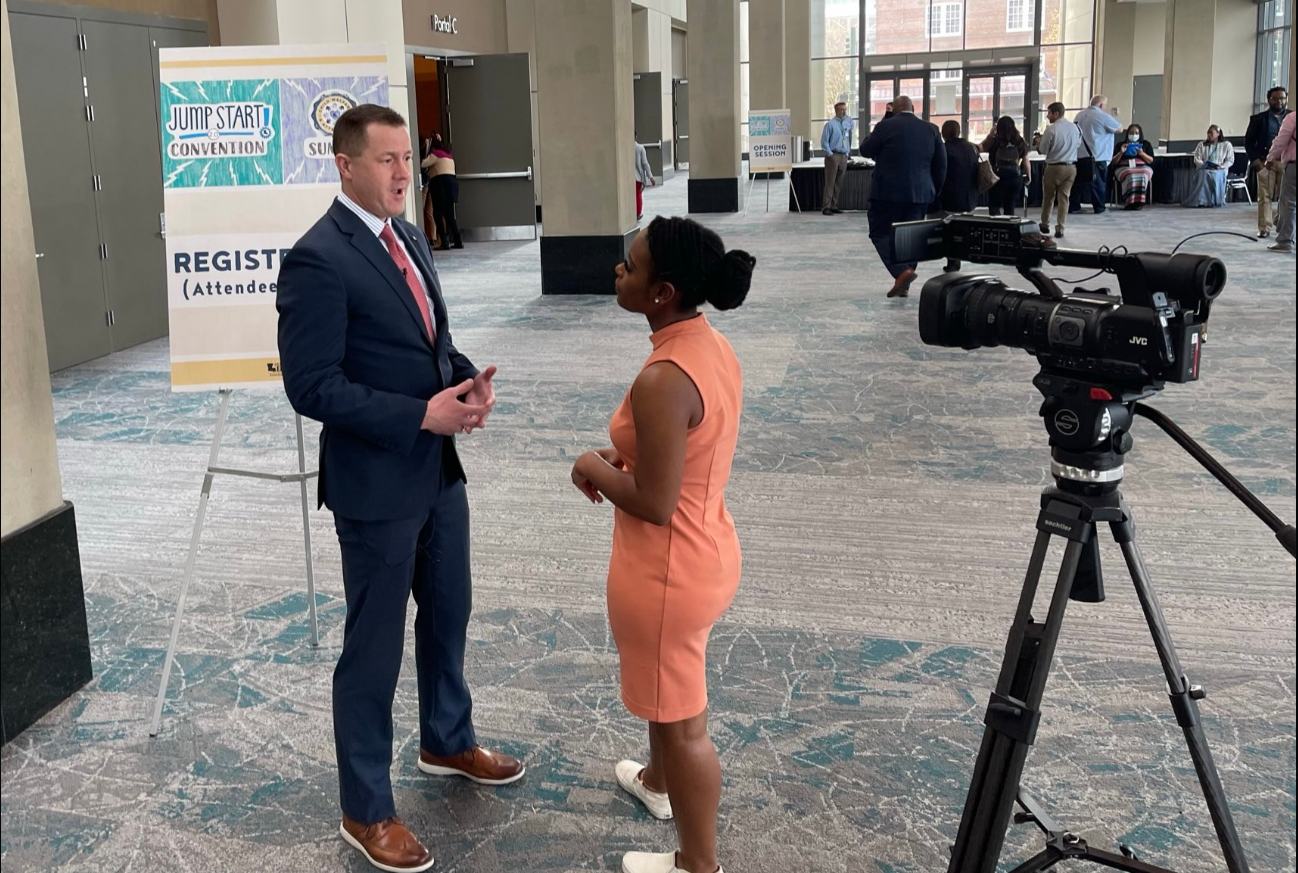
BATON ROUGE, La. – In a letter sent out Monday to all Louisiana school districts, state Superintendent of Education Cade Brumley warned that administrators should not comply with new federal rules that extend civil rights protections to LGBTQ+ students.
The Biden-Harris administration’s revised final rule of Title IX policy protects LGBTQ+ students from discrimination and other abuse was issued by the U.S. Department of Education last Friday.
While the new rule does not provide guidance on whether schools must allow transgender students to play on sports teams corresponding with their gender identity to comply with Title IX, the question is addressed in a separate rule proposed by the agency in April.
In his letter, reported by NOLA.com/The Advocate, Brumley said the federal rules, which take effect Aug. 1, would force schools to allow transgender girls to use girls’ restrooms and locker rooms. He also said the rules would compel teachers to call students by their preferred names and pronouns — a requirement that would appear to conflict with a bill in the Louisiana Legislature to protect teachers who refuse to refer to students by pronouns that don’t match their sex assigned at birth.
Brumley said he believes the rules would also conflict would a 2022 state law that bans transgender girls and women from participating on female sports teams at the K-12 school or college level, NOLA.com/The Advocate reported.
“The Title IX rule changes recklessly endanger students and seek to dismantle equal opportunities for females,” he wrote in the April 22 letter.
Restating his “staunch opposition” to the federal rules, Brumley said “it remains my position that schools should not alter policies or procedures at this time.”
Jennifer Klein, the director of the White House Gender Policy Council, said during a call with reporters Thursday that the administration sought to strike a balance with respect to these issues, “reaffirming our longstanding commitment to fundamental fairness.”
Louisiana
Severe weather doesn’t stop GOP anti-LGBTQ+ bills in Louisiana
As severe weather shut down nearly every government entity- a legislative committee met & quietly advanced anti-LGBTQ+ legislation

By Piper Hutchinson | BATON ROUGUE, La. – As severe weather shut down nearly every government entity in Louisiana Wednesday, a legislative committee met and quietly advanced two pieces of anti-LGBTQ+ legislation.
The Louisiana House Committee on Education advanced House Bill 121 by Rep. Raymond Crews, R-Bossier City, which prohibits the use of transgender and nonbinary youth’s chosen names and pronouns in public K-12 schools without parental permission, along a party line 9-3 vote.
House Bill 122 by Rep. Dodie Horton, R-Haugton, which limits discussion of gender and sexuality in public K-12 schools, also advanced on a 9-3 vote, with Rep. Barbara Freiberg, R-Baton Rouge, joining Democrats in opposing the bill.
The Legislature approved both bills last year. Then-Gov. John Bel Edwards, a Democrat, vetoed them, and Republicans were unable to overturn his action. A representative for Gov. Jeff Landry, a Republican, filed a card in support of both Crews’ and Horton’s bills.
Committee hearings on the same bills in previous years stretched on for hours with extensive public testimony, primarily from LGBTQ+ youth, but Wednesday’s hearing moved at an unusually fast clip, with many advocates stuck at home.
The committee was scheduled to meet at noon, an hour before a tornado watch expired for Baton Rouge. Tornadoes had touched down in Slidell and Lake Charles in the morning, and flooding and storm debris blocked roads across the state.
Just four people testified against the bills Wednesday. By comparison, more than 40 people testified against the same bills in 2023, and over 300 more filed cards in opposition but did not speak.
The Louisiana Senate decided late Tuesday afternoon to cancel its committee meetings the next day to avoid the hazardous weather. Senators aren’t scheduled to return to the Capitol until Monday.
The House of Representatives canceled all but two of its six scheduled committee meetings, In addition to Education, the House and Governmental Affairs Committee also met at noon to discuss several election-related bills
Advocates with Forum For Equality, an LGBTQ+ rights organization, called on House Speaker Phillip DeVillier, R-Eunice, to cancel the two committee hearings.
Crews’ bill would require teachers and other school personnel to use a student’s given name and pronouns that align with their birth sex unless a student has permission from their parents to use their chosen name.
Teachers would be allowed to disregard a parent’s choice to respect their transgender or nonbinary child’s preferred name and pronouns if they have religious opposition to doing so.
Freiberg noted this double standard during the hearing, pointing out the bill was touted as a parental rights bill but allowed a parent’s choice to be invalidated.
In an interview after the hearing, Crews said that while his bill supports parental rights, parents should not be able to eclipse somebody else’s religious rights.
His bill does not have an exception for those who have a religious opposition to deadnaming or misgendering students.
Deadnaming is when someone uses a transgender or nonbinary individual’s birth name, or “dead name,” against their wishes. Misgendering occurs when someone refers to an individual as a gender that they do not identify.
At the core of Crews’ proposal is his belief that parents have the right to know whether their children are transgender. Advocates for the LGBTQ+ community say the bill would force transgender youth to out themselves to their parents or else be deadnamed and misgendered at school. They have raised concerns about what happens when parents find out — and don’t approve.
A survey from the Trevor Project found 38% of transgender women, 39% of transgender men and 35% of nonbinary youth have experienced homelessness as a result of parental rejection.
Horton’s bill is similar to a Florida law referred to by critics as a “Don’t Say Gay” bill. Her proposal is much broader and would apply to K-12 grades, whereas Florida’s law applies only to early grade students.
Florida recently settled a lawsuit over the law filed by civil rights activists. As part of the agreement, students and teachers are permitted to discuss gender and sexuality as long as it is not part of classroom instruction.
Horton’s bill would not just apply to classroom instruction. It also prohibits “covering the topics of sexual orientation or gender identity” during any extracurricular and athletics events, meaning it could potentially hinder student chapters of the Gay-Straight Alliance and other LGBTQ+ student organizations.
Horton said she didn’t believe teachers should discuss their “lifestyle choices” with students and made reference to a Caddo Parish teacher who she said bragged about confusing children with their sexual orientation.
As written, the bill would also prevent discussion of heterosexuality and the cisgender identity.
The bills will next be discussed by the full House of Representatives.
******************************************************************************************

Piper Hutchinson is a reporter for the Louisiana Illuminator. She has covered the Legislature and state government extensively for the LSU Manship News Service and The Reveille, where she was named editor in chief for summer 2022.
*****************************************************************************
The preceding piece was previously published by the Louisiana Illuminator and is republished by permission.
Louisiana Illuminator is part of States Newsroom, a network of news bureaus supported by grants and a coalition of donors as a 501c(3) public charity. Louisiana Illuminator maintains editorial independence.
Louisiana
Lambda Legal seeks block on Louisiana trans youth healthcare ban
The Louisiana Senate and House of Representatives voted to override Louisiana Gov. John Bel Edwards’ veto of Act 466, the Health Care Ban
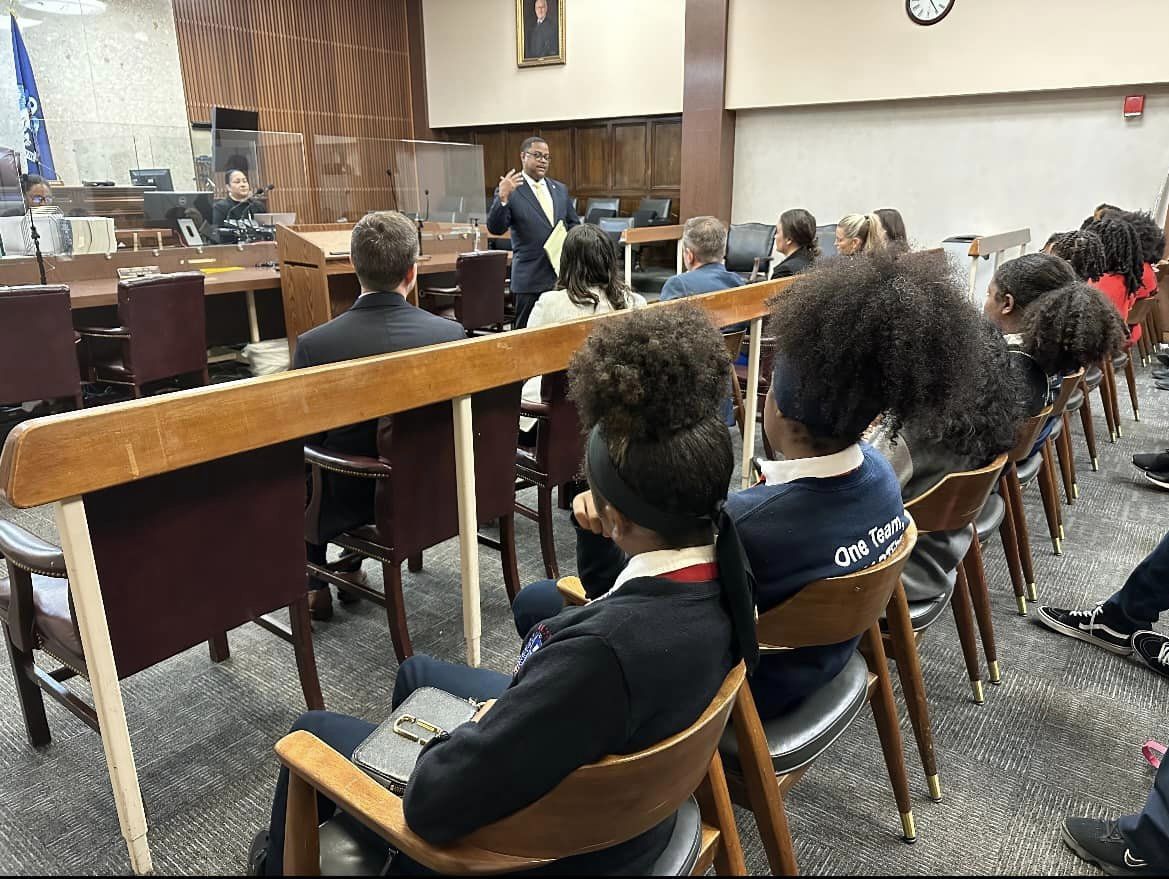
NEW ORLEANS, La. – Five transgender Louisiana youth and their families sued a Louisiana state agency on Monday to stop the harm caused by the recently enacted “Health Care Ban” (HB 648), now Act 466, which prohibits the provision of necessary gender-affirming medical care only for minors who are transgender and punishes health care providers for providing such care in Louisiana.
The law took effect last week on Jan. 1, after the state legislature overrode a veto by former Gov. John Bel Edwards last July. The lawsuit claims the Health Care Ban is unconstitutional under the Louisiana state constitution and that it violates the rights of transgender adolescents and their parents to dignity and equal protection under the law.
According to the lawsuit, the Health Care Ban:
- Strips parents of their right to direct the health care of their children, including the right to decide, along with qualified health care providers, the best medical treatment for their child;
- Violates the Louisiana Constitution by unlawfully interfering with the minors’ fundamental right to obtain or reject medical treatment, with the support of their parents and advice of their medical providers; and
- Violates the Louisiana Constitution’s guarantee to equal protection of the laws by discriminating based on sex and transgender status.
The lawsuit, Soe, et al. v. The Louisiana Board of Medical Examiners, et al. was filed in the Civil District Court for the Parish of Orleans, a state court in Louisiana which has jurisdiction over claims filed under the Louisiana Constitution.
The Louisiana Senate and House of Representatives voted to override Louisiana Gov. John Bel Edwards’ veto of Act 466, the Health Care Ban, on July 18, 2023. Two other vetoes – of the “Don’t Say LGBTQ+” bill and the Pronoun Restriction bill – survived override votes. Act 466 went into effect on January 1, 2024.
“The Health Care Ban is so upsetting,” plaintiff Max Moe said. “Growing up, I was intensely self-conscious of my body, which led to a near-constant state of discomfort. Oftentimes I was incredibly uncomfortable and anxious and even found it hard to talk. However, being able to access gender-affirming hormones and be my true self has been a lifesaver. I am now far more comfortable and confident and feel less distress. This health care has allowed me to be happy, healthy, and my true authentic self – the boy I know I am. I am terrified of what the Health Care Ban will do and worry about how my mental health might deteriorate.”
In addition to Max, the plaintiffs suing the state include fellow minors Susie Soe, Daniel Doe, Nia Noe, and Grant Goe, ages 9 to 16, as well as their respective parents and guardians, all identified pseudonymously, who reside throughout the state from Orleans to Terrebonne to Livingston.
“This Health Care Ban only stands to harm Louisiana’s trans youth and their families,” said Omar Gonzalez-Pagan, Counsel and Health Care Strategist for Lambda Legal. “The transgender young people we represent, along with hundreds of other minors in the state, are at risk of losing necessary, life-saving medical care just because Louisiana has singled them out for discriminatory treatment. Louisiana has prohibited this medical care only for minors who are transgender, despite it being evidence-based, safe, and effective, and being supported by all major medical organizations. Denying medical care to youth just because they are transgender is both unlawful and inhumane – especially when the same treatments remain available to all other minors. The Health Care Ban represents broad government overreach into the relationship between parents, their children, and their health care providers.”
Related:
-

 a&e features4 days ago
a&e features4 days agoMusical Mondays, a mainstay in WeHo nightlife, celebrates 16 years
-

 National2 days ago
National2 days agoDiscredited former cop played ‘key role’ in deportation of gay make-up artist
-

 Arts & Entertainment3 days ago
Arts & Entertainment3 days ago‘Bring it to Brunch’ returns to West Hollywood
-

 Arts & Entertainment1 day ago
Arts & Entertainment1 day agoA Night of legacy, love, and liberation: Inside the 2025 April Fool’s Ball
-

 Myanmar3 days ago
Myanmar3 days agoLGBTQ+ advocacy group joins Myanmar earthquake relief effort
-

 California2 days ago
California2 days agoSouth Park provides green space to a predominantly Latino community
-

 a&e features3 days ago
a&e features3 days agoPeppermint thrives in the spotlight
-

 Arts & Entertainment1 day ago
Arts & Entertainment1 day agoSouth Coast Repertory Theatre hosting world premiere production
-

 Movies17 hours ago
Movies17 hours agoHeartfelt ‘Wedding Banquet’ remake a romcom worth seeing
-

 Brazil12 hours ago
Brazil12 hours agoUS lists transgender Brazilian congresswoman’s gender as ‘male’ on visa



